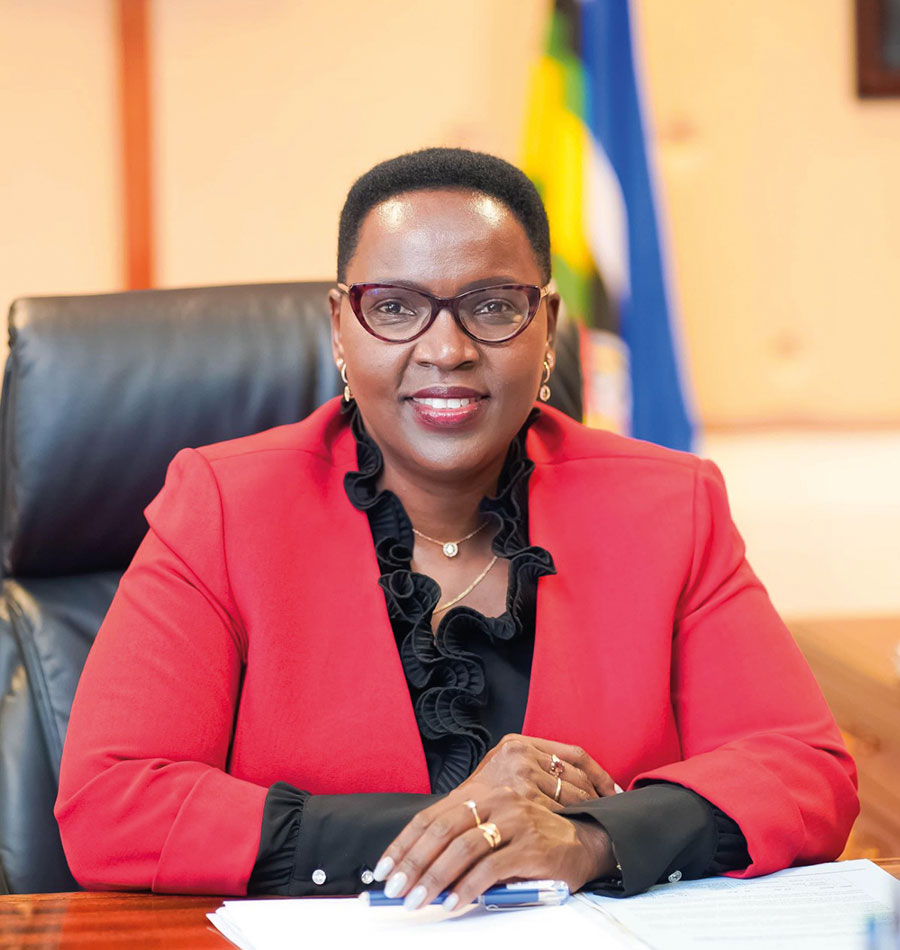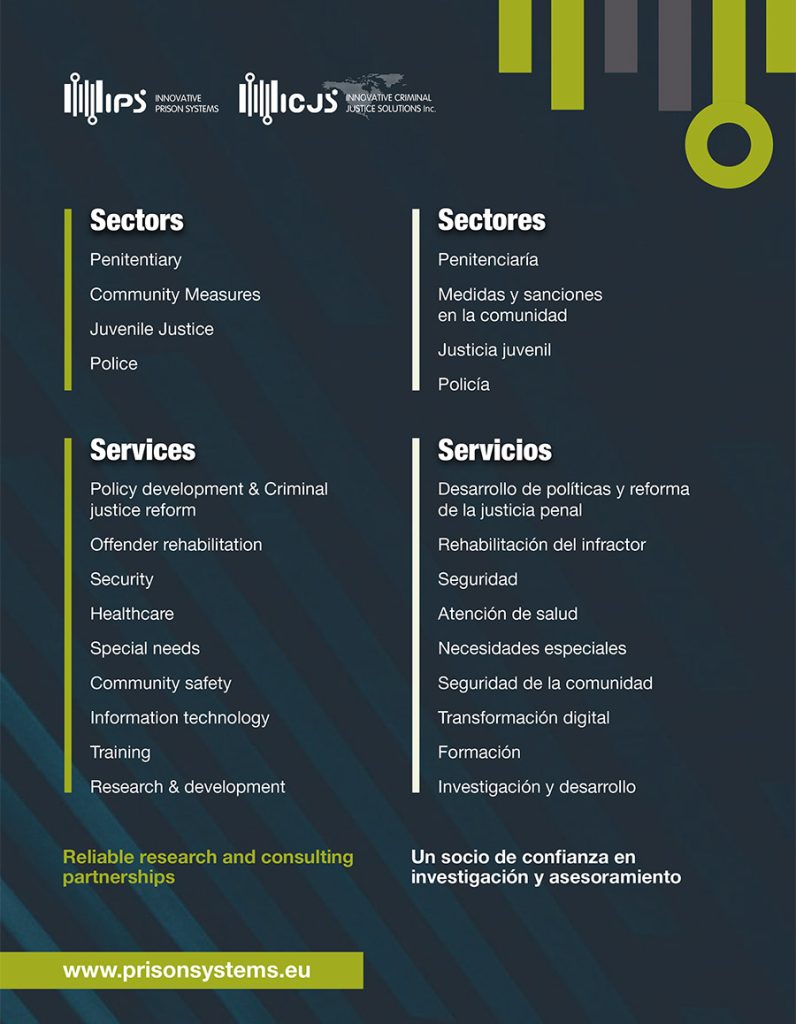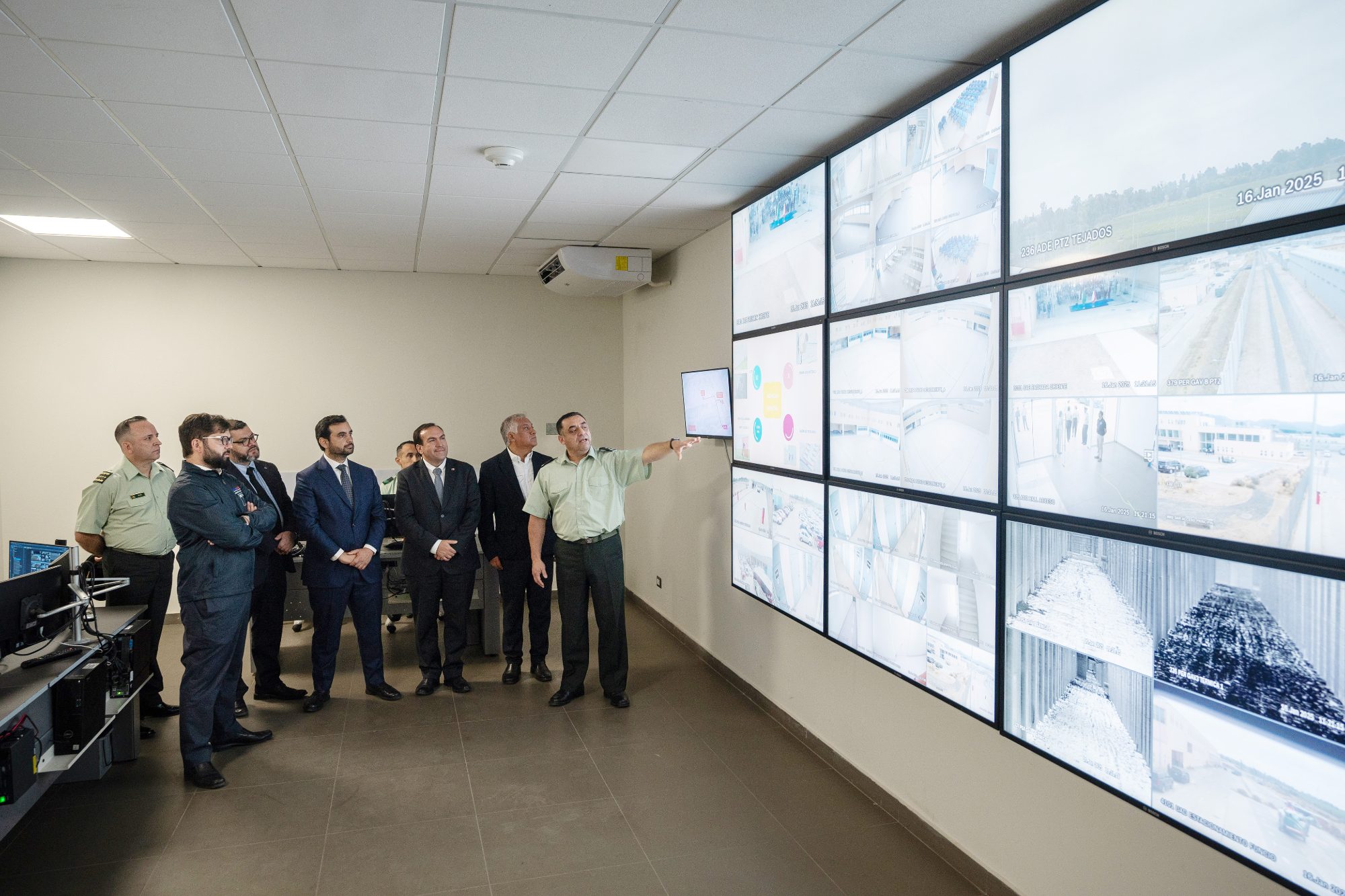Interview
Salome Muhia-Beacco
Principal Secretary for the State Department of Correctional Services, Kenya
Dr. Salome Muhia-Beacco is spearheading transformative policy reforms within Kenya’s correctional system. Her visionary leadership is anchored in the principles of justice, human dignity, and national service. In this interview, Dr. Beacco discusses the Department’s priorities, from modernising correctional infrastructure and expanding education and rehabilitation programmes, to promoting non-custodial measures, digitalisation, and Kenya’s growing role in international correctional platforms.
JT: The 2023–2027 Strategic Plan sets the direction for reforming Kenya’s correctional services, aligning with national goals and focusing on rehabilitation, modernisation, and effective service delivery.
How does this strategic Plan reflect the broader mission and priorities of the State Department for Correctional Services?
SMB: When the current government came into power in October 2022, one of its mandates was the bottom-up economic transformation agenda (BETA).
Kenya is now classified as a lower-middle-income country, so one of the goals we have is to bring all those at the bottom of the pyramid into the middle-income level. In the State Department for Correctional Services, one of the things we have been doing is aligning ourselves with that bottom-up economic transformation in various ways.
Firstly, by modernising our correctional infrastructure. We have begun major reforms to ensure that living conditions in our facilities meet international standards, that those in our care receive humane treatment, that they receive skills training to reduce reoffending, and that they are supported in their rehabilitation.
We have undertaken serious legal and policy reforms. One key outcome is that the State Department for Correctional Services, which consists of two technical units – the Kenya Prison Service, and the Probation and Aftercare Service – will now have a clear legal basis for probation and aftercare services. Secondly, we plan to strengthen the link between these two units.
Through these reforms, our goal is better service delivery for the benefit of both inmates and staff. To accomplish that, we are deliberately enhancing the use of non-custodial measures such as probation services, community service orders, and community patrols. Within our legal reforms, we have reintroduced the parole system, which we hope to utilize more effectively from now on.
I sincerely want to thank our staff for embracing alternative justice systems, including dispute resolution outside the prison system, probation orders, increased use of community service orders, and more.
We also have increased the use of aftercare services, which involve supporting offenders released back into the community. We provide them with essential resources, whether capital in terms of funds or equipment to help them start livelihoods, and monitor them to prevent reoffending.
Finally, a critical component we are maximising is the Community Probation Volunteer Programme. This programme engages opinion leaders of the community at the village level to assist in supervising offenders released into the community, so we can mentor, monitor, and help them and ensure that these individuals are fully reintegrated into society, capable of supporting their families and sustaining themselves.
Another outcome of the policy and legal reforms we have recently undertaken is that it will allow us to enhance the professionalism of the correctional services. As part of this process, we are going to establish an academy dedicated specifically to the training of correctional officers, from both the Kenya Prison Service and the Probation and Aftercare Service.
This training will help officers manage offenders better, whether they are serving custodial or non-custodial sentences. It will also help them apply a more evidence-based approach to offender management, so they can assess and identify cases where a custodial sentence is not necessary.
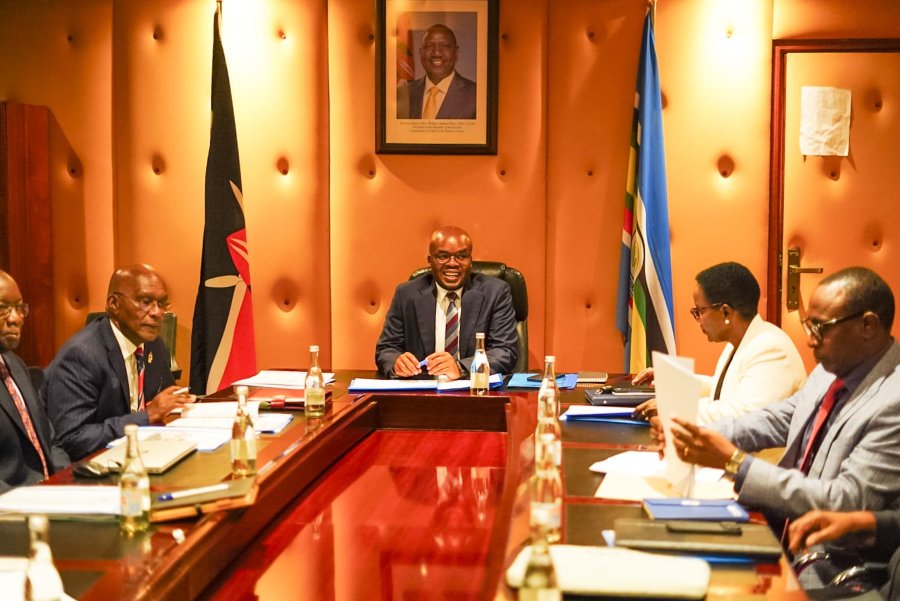
What new or expanded rehabilitation programmes are being prioritised to support the holistic transformation of offenders? Can you share measurable outcomes or success stories of these rehabilitation programmes?
SMB: We have many rehabilitation and reform programmes that we undertake both at the Kenya Prison Service and Probation and Aftercare. All of them are geared towards the reform and rehabilitation of offenders so that, once they are eventually released back into the community, they are less likely to reoffend.
First of all, we strongly believe that education is one of the key drivers in the elimination of poverty. Within the Correctional Services we have an education unit, which this year has been specifically tasked with driving the education agenda within the prison service.
One of our major success stories is that eleven people under our supervision graduated with a Bachelor of Laws degree from the University of London in November last year. This is a great achievement that we truly celebrate. Additionally, one of our former inmates graduated with a degree in medicine, and several others have completed diploma and certificate courses in accounting. Some have even been admitted to the bar as advocates, and others are now studying for master’s degrees. For us, this demonstrates that formal education is working.
Many people who had never attended school due to difficult family backgrounds have now resumed their education, and are making progress in primary and secondary education, with the goal of reaching university in future.
Under the Bottom-Up Economic Transformation Agenda, one of the programmes initiated by His Excellency the President was the digitalisation of public services and the creation of a digital superhighway. This initiative is very instrumental, and we are part of it. We hope to eventually digitalise the entire correctional service, allowing those in our care to attend online schools. The Ministry of Education has launched the Open University, and we hope that those individuals who have an aptitude for it will be able to attend. Expanding access to education along with digitalisation would be a great equaliser.
In addition to formal education at primary, secondary, tertiary, and university levels, we also offer vocational training. Those with the aptitude are trained in areas such as tailoring, computer coding, technical services, metalwork, plumbing, and electrical work, among others.
We currently have 108 workshops across the country, and I am very pleased that the government is actively supporting us financially to upgrade all of them. We believe that the better trained the offenders are, the less likely they are to reoffend after release. Through the aftercare programme, my department is now able to empower them by providing tools of trade and seed capital, and this is something we consider very important.
Another key component to us is mental health. We have come to understand that addressing mental health is essential if we are to help convicted persons address the root causes of their offences. Last year, the theme for Correctional Services was mental health and wellness for effective and efficient service delivery.
I personally insisted that all correctional facilities must establish mental health counselling centres, and almost all our prisons now have such centres. We have also conducted a recent recruitment process since we are working to increase the number of counsellors, psychologists, and psychiatrists.
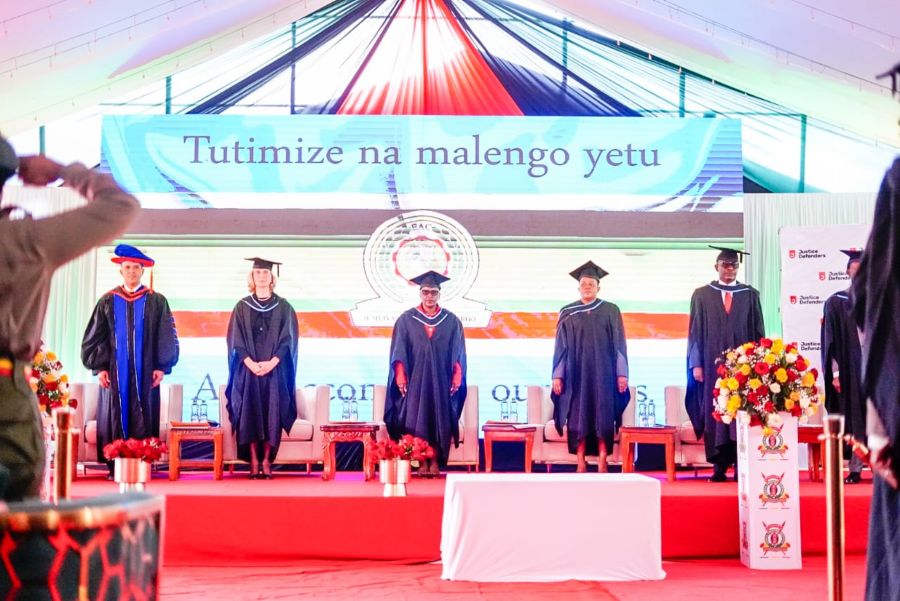
JT: The State Department for Correctional Services is exploring collaboration with the National Olympics Committee of Kenya (NOC-K) as it seeks to leverage on the power of sports in its rehabilitation and reformation agenda.
What role do you see sports and other innovative approaches playing in the rehabilitation strategy of Kenya’s correctional system?
SMB: We have embraced sports as a means of tackling mental health issues and instilling discipline among incarcerated persons. Last year, we introduced chess in all our correctional facilities – 135 prisons and 148 probation offices – and in March this year we competed in an international chess competition, which we hope to participate again in October.
These activities help foster cohesion between inmates and prison officers, instil discipline, and improve mental contentment, so we are very proud of this achievement.
Besides, almost all our facilities have sports teams now, particularly in football and rugby, which has been implemented in collaboration with the Ministry of Sports.
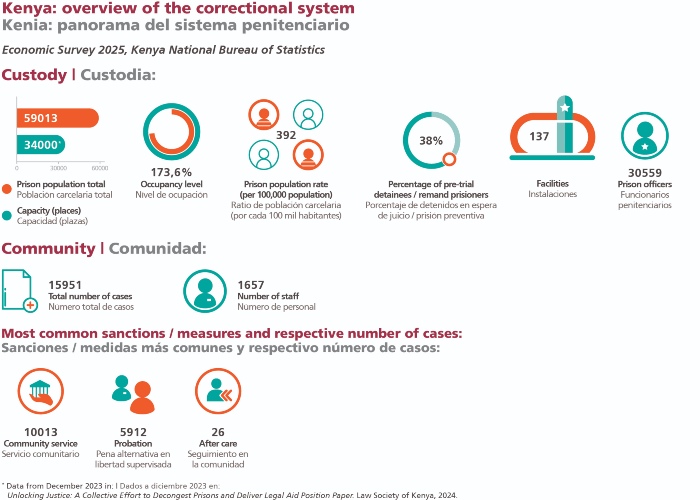
How does the State Department for Correctional Services help promote the use of non-custodial measures?
SMB: We have strengthened our collaboration with the Judiciary because one of our mandates is the preparation of various reports: social inquiry reports such as pre-sentence reports, pre-bail reports, post-bail reports, and sentence review reports.
All of these are prepared by probation officers and by enhancing the capacity of these technical units, we have seen an improvement in judicial decision-making. Judges are now making more informed decisions regarding offenders, because the reports they receive are now more evidence-based.
Furthermore, digitalisation will enhance this process by speeding up the turnaround time for report preparation. That’s why we are stepping up our collaboration with the Judiciary and transitioning to an e-filing system. These reports will soon be filed online and in real time, allowing both the Judiciary and the Prosecution to make faster and more accurate decisions.
Another priority has been the digitalisation of the Probation and Aftercare Service, which we hope to conclude within the next 12 months. After that, we plan on training judicial officers on the importance of social inquiry reports and how to make more informed sentencing decisions.
Finally, we are increasing our engagement with the community. We are working closely with chiefs, local leaders, community opinion shapers, churches, and faith-based organisations. And I am very happy to report that our stakeholders have played a major role in helping build the capacity of our officers, making them more efficient and effective in managing and supporting these offenders.
How do you see the importance of Kenya’s growing involvement in global platforms and events such as ICPA’s Annual Conference and Women in Corrections Conference?
SMB: Participating in these international events is very valuable, particularly because they give us the opportunity to exchange ideas and benchmark how other jurisdictions manage offenders.
For example, I’ve had the privilege of visiting Singapore both last year and this year. Previously I had travelled to Brussels, and this year we also went to Bangkok to observe how women offenders are handled.
These experiences are important because they help to standardise international rules, regulations, and policies relating to offender management. When we share ideas and learn from global best practices, I’m able to provide informed direction and shape more effective policies within our own correctional system, given my role at the policy decision making level.
There are two key outcomes that have been particularly influential in terms of policymaking. The first is the legal and policy reforms we embarked, and this is because we were we were able to look at other jurisdictions such as Canada, the U.S., India, Singapore, and Thailand, and see how they conduct various aspects of their legal systems. This was helpful because we used those insights to inform our own reforms.
Secondly, digitalisation in offender management has proven to be very effective in reducing recidivism, particularly among sex offenders and violent offenders. We had the opportunity to visit Morocco and see how digitalisation has helped them track serial offenders and reduce recidivism.
So yes, participating in these events is very important to us, and we are pleased that there is already interest in Kenya as a future host, which would allow us to showcase the country’s progress and share our experience with the wider community.
Salome Muhia-Beacco
Principal Secretary for the State Department of Correctional Services, Kenya
Salome Muhia-Beacco is a distinguished legal professional with over 26 years of experience in legal practice and Public Service. She holds a Master of Laws (LL.M) in Leadership and Governance from the University of Nairobi. She also earned a Diploma in Law, from the Kenya School of Law, a Diploma in International Humanitarian Peace Studies from the International School of Peace Studies, and a Certificate in Strategic Leadership from the Kenya School of Government. Dr. Beacco was awarded an Honorary Doctorate by the University of Arizona in recognition of her outstanding contributions to Public Service and legal reforms. She is a Chartered Insurer (ACII) from the Chartered Insurance Institute in London and brings a multidisciplinary approach to governance, law, and institutional development.
Advertisement

